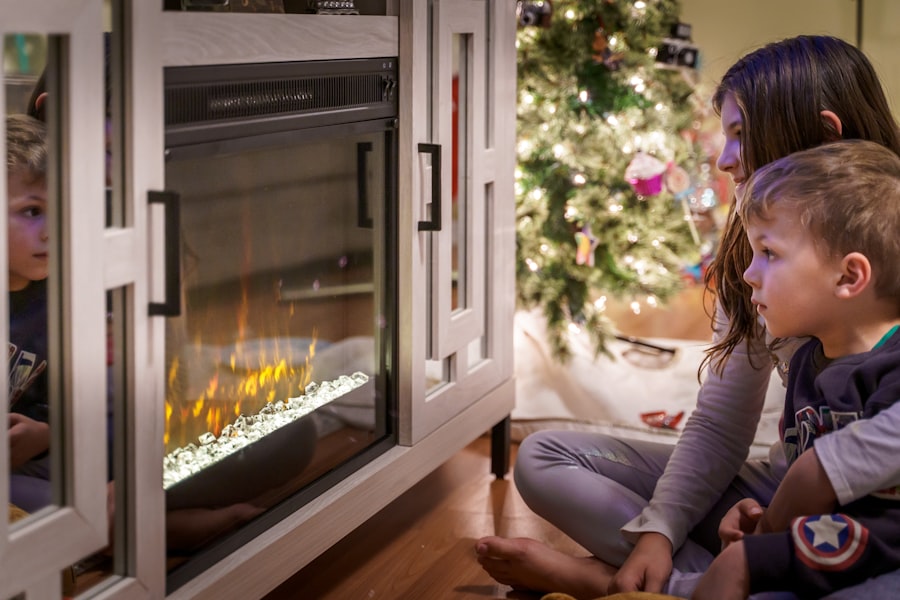Raising baby chickens indoors is a practice that offers both educational and practical benefits. This approach provides a controlled environment for the chicks during their most vulnerable stage, protecting them from predators and harsh weather conditions. It also presents an opportunity for close observation and care, which can be particularly valuable for educational purposes.
Indoor chicken rearing requires careful preparation and ongoing commitment. Essential considerations include:
1. Creating a suitable living space
2.
Providing appropriate nutrition and hydration
3. Maintaining proper hygiene and cleanliness
4. Monitoring health and well-being
5.
Offering socialization and enrichment activities
These factors are crucial for the successful development of baby chickens in a domestic setting. By addressing each of these aspects, caretakers can ensure the chicks’ health, safety, and proper growth. This article will explore these key elements in detail, offering guidance for those interested in raising baby chickens within their homes.
Table of Contents
- 1 Choosing the Right Setup for Baby Chickens
- 2 Providing Proper Nutrition and Water for Baby Chickens
- 3 Maintaining Cleanliness and Hygiene for Baby Chickens
- 4 Monitoring the Health and Well-being of Baby Chickens
- 5 Socialization and Enrichment for Baby Chickens
- 6 Transitioning Baby Chickens to an Outdoor Coop
- 7 FAQs
- 7.1 Is it safe to keep baby chickens in the house?
- 7.2 What do baby chickens need to thrive in a house environment?
- 7.3 What are the potential health risks of keeping baby chickens in the house?
- 7.4 How can I minimize the odor when keeping baby chickens in the house?
- 7.5 At what age can baby chickens be moved from the house to an outdoor coop?
Key Takeaways
- Keeping baby chickens in the house can be a rewarding experience for poultry enthusiasts.
- Choosing the right setup for baby chickens involves selecting a brooder with proper heating and bedding.
- Providing proper nutrition and water for baby chickens is essential for their growth and development.
- Maintaining cleanliness and hygiene for baby chickens is crucial to prevent diseases and infections.
- Monitoring the health and well-being of baby chickens is important for early detection of any issues.
Choosing the Right Setup for Baby Chickens
Creating a Safe and Comfortable Brooder
When raising baby chickens in the house, it is essential to provide them with a suitable living environment that meets their basic needs. This includes a brooder box or pen that is large enough to accommodate their growth, but also provides a sense of security and warmth. The brooder should be equipped with a heat source such as a heat lamp or heating pad to maintain the appropriate temperature for the chicks.
Ensuring a Healthy and Safe Environment
Additionally, the brooder should have a non-slippery surface to prevent leg injuries, as well as proper ventilation to ensure good air quality. Bedding material such as pine shavings or straw should be used to keep the brooder clean and comfortable for the chicks.
Placement and Considerations
It is also important to consider the placement of the brooder in a quiet area away from drafts, direct sunlight, and other pets or young children that may disturb the chicks. By providing a suitable living environment, you can help ensure the health and well-being of your baby chickens.
Providing Proper Nutrition and Water for Baby Chickens

Proper nutrition is essential for the healthy growth and development of baby chickens. A good quality chick starter feed that is specifically formulated for young chicks should be provided from day one. This feed contains all the essential nutrients, vitamins, and minerals that baby chickens need for healthy growth.
It is important to ensure that the feed is always fresh and free from mold or contaminants. In addition to chick starter feed, baby chickens also require access to clean, fresh water at all times. Waterers should be shallow enough for the chicks to drink from without the risk of drowning, and should be cleaned and refilled regularly to prevent contamination.
Proper nutrition is crucial for the healthy growth and development of baby chickens. A good quality chick starter feed that is specifically formulated for young chicks should be provided from day one. This feed contains all the essential nutrients, vitamins, and minerals that baby chickens need for healthy growth.
It is important to ensure that the feed is always fresh and free from mold or contaminants. In addition to chick starter feed, baby chickens also require access to clean, fresh water at all times. Waterers should be shallow enough for the chicks to drink from without the risk of drowning, and should be cleaned and refilled regularly to prevent contamination.
Maintaining Cleanliness and Hygiene for Baby Chickens
Keeping the brooder clean is essential for the health and well-being of baby chickens. Bedding material should be changed regularly to prevent the buildup of waste and bacteria. This helps to maintain a clean and hygienic environment for the chicks to thrive in.
In addition to regular bedding changes, it is important to keep the brooder box itself clean by regularly wiping down surfaces with a mild disinfectant solution. This helps to prevent the spread of disease and ensures that the chicks are not exposed to harmful bacteria or pathogens. Maintaining cleanliness and hygiene is crucial for the health and well-being of baby chickens.
Bedding material should be changed regularly to prevent the buildup of waste and bacteria. This helps to maintain a clean and hygienic environment for the chicks to thrive in. In addition to regular bedding changes, it is important to keep the brooder box itself clean by regularly wiping down surfaces with a mild disinfectant solution.
This helps to prevent the spread of disease and ensures that the chicks are not exposed to harmful bacteria or pathogens.
Monitoring the Health and Well-being of Baby Chickens
Regular monitoring of the health and well-being of baby chickens is essential for early detection of any potential issues or illnesses. This includes observing their behavior, appetite, droppings, and overall appearance on a daily basis. Any changes in behavior or appearance should be noted and addressed promptly.
Additionally, it is important to handle the chicks gently and regularly to check for any signs of injury or illness such as wounds, parasites, or respiratory issues. If any concerns arise, it is best to seek advice from a veterinarian who specializes in poultry care. Regular monitoring of the health and well-being of baby chickens is essential for early detection of any potential issues or illnesses.
This includes observing their behavior, appetite, droppings, and overall appearance on a daily basis. Any changes in behavior or appearance should be noted and addressed promptly. Additionally, it is important to handle the chicks gently and regularly to check for any signs of injury or illness such as wounds, parasites, or respiratory issues.
If any concerns arise, it is best to seek advice from a veterinarian who specializes in poultry care.

Building Trust through Interaction
Talking to the chicks, gently handling them, and offering treats can help build trust and create a positive bond between them and their caretakers. This daily interaction will help the chicks become comfortable with human presence and reduce their fear of people.
Preventing Boredom through Enrichment
Providing enrichment activities such as perches, toys, and natural materials like branches or grass can help keep the chicks mentally stimulated and prevent boredom. This is essential for their overall well-being and development.
A Positive Impact on Their Lives
Socialization and enrichment activities have a positive impact on the lives of baby chickens. By providing a stimulating environment and building trust through interaction, you can help them grow into happy and healthy chickens.
Transitioning Baby Chickens to an Outdoor Coop
As baby chickens grow older and become more independent, they will eventually need to transition from living in the house to an outdoor coop. This transition should be done gradually over several weeks to allow the chicks to acclimate to their new environment. The outdoor coop should be predator-proof, well-ventilated, and equipped with roosts, nesting boxes, and access to outdoor space for scratching and dust bathing.
It is important to monitor their behavior during this transition period and provide plenty of support as they adjust to their new surroundings. As baby chickens grow older and become more independent, they will eventually need to transition from living in the house to an outdoor coop. This transition should be done gradually over several weeks to allow the chicks to acclimate to their new environment.
The outdoor coop should be predator-proof, well-ventilated, and equipped with roosts, nesting boxes, and access to outdoor space for scratching and dust bathing. It is important to monitor their behavior during this transition period and provide plenty of support as they adjust to their new surroundings. In conclusion, raising baby chickens in the house can be a rewarding experience that provides numerous benefits for both the chickens and their caretakers.
By providing a suitable living environment, proper nutrition and water, cleanliness and hygiene maintenance, regular health monitoring, socialization opportunities, and a smooth transition to an outdoor coop when they are ready, you can ensure that your baby chickens thrive in your care. With dedication, patience, and love, you can create a positive environment for your baby chickens that will set them up for a healthy and happy life as they grow into adult chickens in your backyard coop.
If you’re considering keeping baby chickens in the house, you may also be interested in learning about different types of chicken coops. One option is the A-frame chicken coop, which provides a simple and efficient design for housing your chickens. Another unique option is the chicken coop trampoline, which allows your chickens to roam freely while still being protected. For those looking for a larger coop, the chicken coop in Grand Island, NE offers a spacious and secure environment for your feathered friends. Check out more information on chicken coop options here.
FAQs
Is it safe to keep baby chickens in the house?
Yes, it is safe to keep baby chickens in the house as long as proper precautions are taken. This includes keeping the living area clean, providing proper ventilation, and ensuring the chicks have access to food and water.
What do baby chickens need to thrive in a house environment?
Baby chickens need a warm, draft-free environment, access to food and water, and proper bedding to thrive in a house environment. They also need space to move around and exercise.
What are the potential health risks of keeping baby chickens in the house?
The potential health risks of keeping baby chickens in the house include the spread of bacteria such as salmonella, as well as potential respiratory issues if proper ventilation is not provided. It is important to practice good hygiene and cleanliness when keeping baby chickens indoors.
How can I minimize the odor when keeping baby chickens in the house?
To minimize odor when keeping baby chickens in the house, it is important to keep their living area clean by regularly changing their bedding and cleaning their food and water containers. Proper ventilation and air circulation can also help reduce odor.
At what age can baby chickens be moved from the house to an outdoor coop?
Baby chickens can typically be moved from the house to an outdoor coop at around 6-8 weeks of age, once they have developed their feathers and are better equipped to regulate their body temperature. It is important to gradually acclimate them to the outdoor environment.
Meet Walter, the feathered-friend fanatic of Florida! Nestled in the sunshine state, Walter struts through life with his feathered companions, clucking his way to happiness. With a coop that’s fancier than a five-star hotel, he’s the Don Juan of the chicken world. When he’s not teaching his hens to do the cha-cha, you’ll find him in a heated debate with his prized rooster, Sir Clucks-a-Lot. Walter’s poultry passion is no yolk; he’s the sunny-side-up guy you never knew you needed in your flock of friends!







